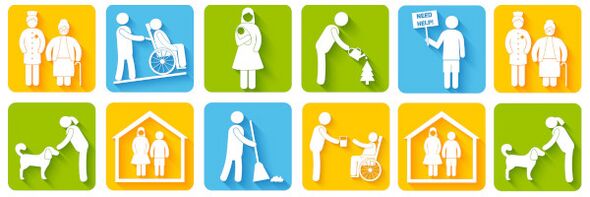Personal Access System for Services (PASS): Difference between revisions
No edit summary |
No edit summary |
||
| Line 7: | Line 7: | ||
|status=Development | |status=Development | ||
|sector=Data | |sector=Data | ||
|initiative=Personal Data Store | |||
|chapter=Low Income Housing | |chapter=Low Income Housing | ||
|summary=Social services are programs or services designed to support individuals and communities in need. They provide assistance with basic needs such as food, housing, and clothing, as well as health and medical care, education and job training, child care, support for individuals with disabilities or mental health conditions, and aging and elder care. These services are intended to improve the quality of life for individuals and communities and help individuals achieve self-sufficiency. | |summary=Social services are programs or services designed to support individuals and communities in need. They provide assistance with basic needs such as food, housing, and clothing, as well as health and medical care, education and job training, child care, support for individuals with disabilities or mental health conditions, and aging and elder care. These services are intended to improve the quality of life for individuals and communities and help individuals achieve self-sufficiency. | ||
Latest revision as of 19:07, December 7, 2024
| Personal Access System for Services (PASS) | |
 Personal Access System for Services (PASS) | |
| Team Organizations | Code PDX Portland OR |
| Point of Contact | Florian Scherrer Hugh Harker Wilfred Pinfold |
| Participating Municipalities | Portland OR |
| Sectors | Data |
| Initiative | Personal Data Store |
| Status | Development |
| Last Updated | February 1, 2026 |
Summary
Social services are programs or services designed to support individuals and communities in need. They provide assistance with basic needs such as food, housing, and clothing, as well as health and medical care, education and job training, child care, support for individuals with disabilities or mental health conditions, and aging and elder care. These services are intended to improve the quality of life for individuals and communities and help individuals achieve self-sufficiency.
Social services also provide support for homeless individuals, veterans and those at risk of homelessness, assistance for survivors of domestic violence or abuse, substance abuse treatment, and programs to help individuals reintegrate into society after incarceration. These services are typically provided by the government or non-profit organizations and are intended to address social and economic inequalities and provide a safety net for those in need. The goal of social services is to empower individuals to lead healthy, productive lives and achieve their full potential.
A study 'Bringing Social Safety Net Benefits Online' conducted by Code for America in 2019 analyzed every online instance of each state’s applications processes across five core safety net programs screen by screen—more than 75 applications in total. The study focused on SNAP, Medicaid, TANF, WIC, and LIHEAP because these are large federal programs that states (and sometimes counties) have considerable leeway to implement. They found that while every state offers a Medicare online application no state offered all five services online. In addition to offering Medicare online Oregon offers a combined SNAP and TANF application but the state does not do well on a streamlined system. The average time to complete applications for SNAP, Medicaid, and TANF is 80 minutes as opposed to California at 30 minutes.
For those staying in a shelter or shuttling between other people’s homes, keeping track of these vital documents can be very difficult. Mail is frequently unreliable, work schedules are unaccommodating to business hours, and field offices are located far from home. Making applications easily available online is one of the most important first steps in meeting users where they are. There have been several efforts to build tools that help users collect and share documents needed in applying for services including:
- My Digital Data Locker Baltimore
- OpenWallet Foundation
- Kiip
- Louisiana Rapidly Scaled Pilot Solutions to Combat COVID-19
- The Transformative Power of a People-Centered, Digital-First Safety Net
- Oregon Digital Safety Net
These projects all explore Data Sovereignty as a way to assist the user in accessing services. Much more can be done to mature this space. Once the user has control of their own data that data can be used to populate forms streamlining and automating the submission process. While the service interfaces are patchy and siloed this Personal Access System for Services provides the user and the case worker with a unified interface.
Several Entities are providing guidance to this work including:
- Central City Concern
- Homelessness Research & Action Collaborative
- Lived Experience Advisory Committee
- Get Started with PASS
- PASS - Personal Access System for Services GITHUB Page
- Personal Access System for Services Demonstration Location
You can request a demonstration of PASS here.